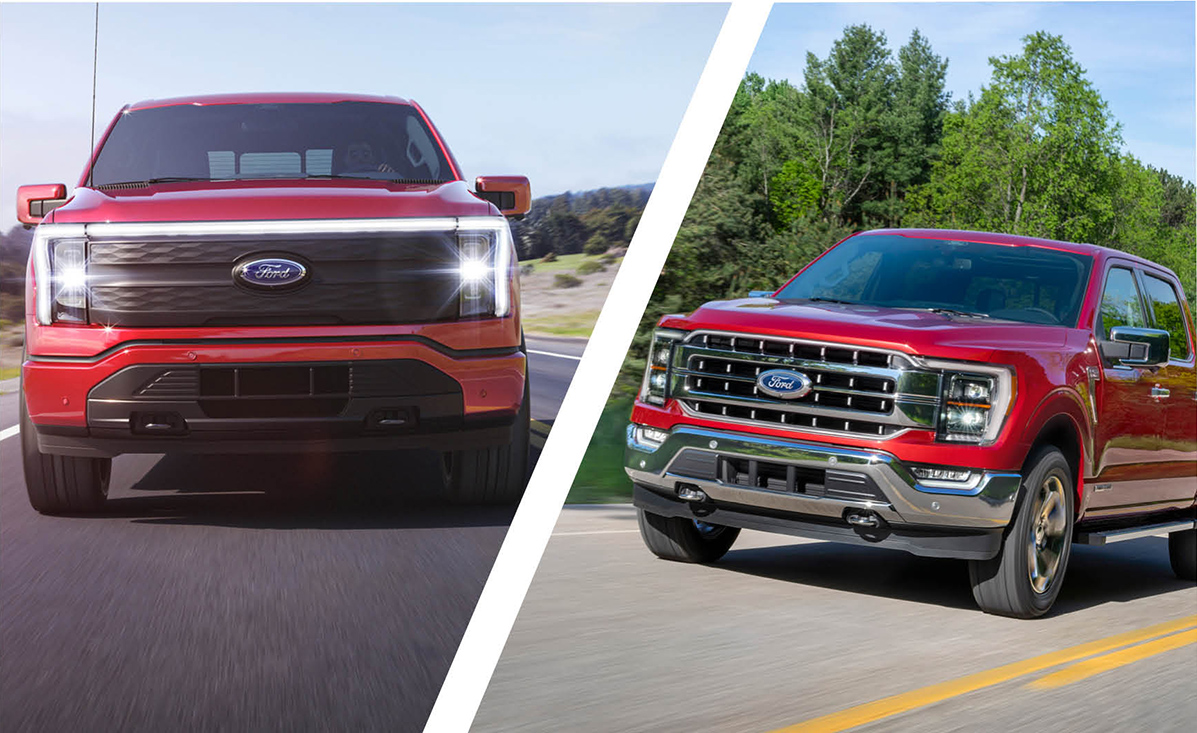Introduction
When people think of electric vehicles (EVs), compact consumer models designed for urban environments often come to mind. However, over the past decade, EVs have diversified significantly, including models suitable for contracting, landscaping, and delivery duties. As auto companies continue to innovate and address the challenges of electrifying heavy-duty work trucks, fleet managers should consider the benefits of transitioning from gas to electric trucks. With more electric trucks hitting the market and increased support for EV infrastructure, it’s not a matter of if but when fleet managers will make the switch.
Why Consider Electric Trucks?
Growing Adoption of Electric Fleets
Many forward-thinking companies have already started electrifying their fleets. New York City plans to convert its Metropolitan Transportation Authority bus system to an all-electric fleet by 2040. Amazon is already using EVs from Rivian in its delivery fleet, aiming for 100,000 electric delivery vehicles by 2030. Tesla’s Cybertruck and Semi, an all-electric pickup truck and Semi truck with the performance specs of a sports car, both began deliveries in 2024. Although adding electric trucks to your fleet is a complex task, it’s becoming increasingly viable as more electric trucks hit the road and supporting infrastructure expands.
Automaker Commitment to Electric Trucks
Automakers like Ford, Rivian, GM, and Stellantis are releasing electric pickup and commercial trucks to the market. The U.S. is investing billions to create high-paying jobs and build new EV manufacturing plants, further propelling the EV movement. Electric trucks are expected to become commonplace within the next decade, making now an ideal time for fleet managers to start considering their adoption.
Pros of Electric Trucks
Save Money Through EV Tax Credits
EV tax credits play a significant role in encouraging the switch from gas to electric vehicles. The Environmental Protection Agency (EPA) enforces stringent carbon dioxide emissions limits on new medium and heavy-duty vehicles, affecting model years 2027-2032. Selling electric trucks helps original equipment manufacturers (OEMs) lower their carbon emissions and qualify for highly lucrative EV tax credits. Fleet managers can benefit from rebates, vehicle registration fee reductions, loans, and special low-cost charging rates. For more details, visit the U.S. Department of Energy’s Alternative Fuels Data Center.
Cut Fuel and Maintenance Costs
EVs are four times more efficient than internal combustion engines, resulting in substantial fuel savings. Additionally, EVs require less maintenance—no oil changes or spark plugs—and electric motors reduce brake wear by slowing the vehicle through regenerative braking. And the batteries last for a long time.
Policy Support and Infrastructure Growth
As of July 2021, 47 states and the District of Columbia offer incentives for deploying EVs or alternative fuel vehicles and developing the necessary infrastructure. Policy changes are accelerating the adoption of EVs. California, for example, surpassed its zero-emission vehicle truck sales goal two years ahead of schedule. The U.K. plans to ban petrol and diesel cars by 2035. Fleet managers should consider these trends and the growing infrastructure to support EVs.
Cons of Electric Trucks
Higher Up-Front Costs
New technology comes at a premium. The 2023 Rivian R1T starts at $73,000, the Ford F-150 Lighting begins at $49,995, and the Tesla Semi starts at $150,000. Federal and state incentives can reduce these costs, but the initial investment remains significant.
Adoption Challenges
Traditional pickup truck owners may resist switching to electric trucks due to brand loyalty and stereotypes. Convincing these buyers requires strategic messaging and branding to highlight the benefits of electric trucks. Tools like the Commercialevs.com ‘Resource Center’ can help educate fleet managers on the extensive benefits of electrification.
Range and Performance Limitations
While most combustion-powered vehicles offer fuel ranges of 300-450 miles per tank, the average EV range has improved from 234 miles in 2021 to just under 300 miles today. High speeds and heavy loads can significantly reduce an EV’s range. Additionally, EVs struggle in cold weather, where heating systems can drain the battery and cut the range by over 40%. Lastly, the EV charging infrastructure in the US is not widespread enough to meet the growing demand for electric commercial vehicles.
Future Prospects for Electric Trucks
Starting Small
Electric trucks may not yet be ideal for long-distance travel due to the limited number of EV charging stations. However, they are well-suited for local routes, such as last-mile delivery applications, where their impact can be significant.
Heavy-Duty and Efficient Models
Electric trucks are built to be both robust and efficient. Tesla’s Cybertruck is made from ultra-hard stainless steel, and Chevrolet’s electric Silverado can tow up to 10,000 lbs. and offers an estimated 400-mile range. The GMC Hummer EV Pickup truck boasts up to 1,000 horsepower and a 380-mile range, appealing to traditional truck users.
Advancing Charging Infrastructure
Range anxiety is a common concern for EV drivers. “Return-to-base” charging, where fleet vehicles charge at the fleet site, is becoming more common. Rivian’s bidirectional charging allows vehicles to charge other EVs or power homes during outages. Sweden is even developing electrified roads to charge vehicles while driving.
Ideal for Fleets
Electric trucks are particularly suitable for delivery services. States like California offer high-occupancy vehicle (HOV) lane access for EVs, enabling faster deliveries. They are economical, suitable for specific routes, and can be charged overnight at the fleet site.
Conclusion
The transition to electric trucks offers significant benefits, including cost savings, reduced maintenance, and alignment with future regulatory trends. While there are challenges, such as higher initial costs and range limitations, the rapid advancements in EV technology and infrastructure make now an opportune time for fleet managers to consider integrating electric trucks into their operations. Electric trucks promise a more eco-friendly future, along with stronger, faster, and tougher vehicles, setting the stage for the next generation of commercial transportation.
Considering the rapid advancements and growing support for electric vehicles, it’s a strategic move for fleet managers to explore the integration of electric trucks. The future of transportation is electric, and early adoption can provide significant long-term benefits.




